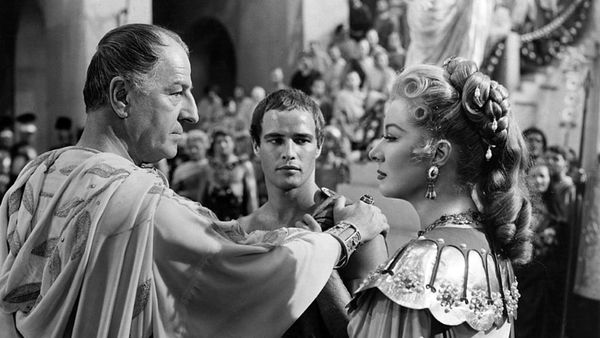
Two thousand years ago, the masculine nonchalance and succinctness that we associate with Clint Eastwood was evidently already pretty popular.
"Veni, vidi, vici" is, on the spectrum of victorious military pronouncements, decidedly on the pithy end: "I came, I saw, I conquered." The ancient Roman historian Appian attributed this statement to Julius Caesar, the powerful Roman statesman who used military force to elevate the Roman Republic's status to Empire. The swagger and braggadocio of the quote has inspired everyone from Victor Hugo to Jay Z, but was Caesar referring to a military victory or a Chinese buffet?
Advertisement
The thing about Julius Caesar is he loved to win. Born into the elite Senatorial class, Caesar rose through the ranks of both the military and the Roman senate and served for a year as the governor of Spain. He got two of his rich friends to bankroll his campaign to run for consul — the highest elected official of Rome, a position so powerful it was only able to be held for one year out of every 10 by one person. After serving a year as consul of Rome, he was made governor of southern Gaul (modern day France), where he spent eight years conquering the rest of Gaul and Britain with his four big armies, or "legions."
He was eventually called back to Rome and would probably have been thrown in jail for exceeding his authority as governor of Gaul, but instead he decided to invade Rome. The consul, Pompey (coincidentally one of the rich guys who had gotten him elected consul a decade earlier) fled to Egypt and Julius Caesar named himself both consul and dictator of Rome and took off after him. Pompey was assassinated by the Egyptians before Caesar could get to him, but while he was there he canoodled with Cleopatra, the last pharaoh of ancient Egypt, helping her defeat her brother/husband Ptolemy.
This is where the immortal words "Veni, vidi, vici" show up in the history books. On his way back to Rome from Egypt, Caesar stopped by to rein in Pharnaces, ruler of Cimmerian Bosporus in modern-day Turkey, as he had been making land grabs of his own. In the quick and apparently cursorily won Battle of Zela, Caesar defeated Pharnaces and, according to Appian, sent a report back to Rome that he arrived, possibly did a little sightseeing and then totally annihilated the competition easily, quickly and blindfolded. Of course, this is just one historian's account — others claim the Battle of Zela wasn't so easily won, but "I came, I saw, I conquered" sure does make Caesar sound cool.
Julius Caesar became both dictator and consul of Rome and its holdings — at the time, dictators were sometimes appointed in times of military crisis with a term limit of six months or less, but Caesar named himself dictator for life However, he used that power to reform the Roman government — he provided land pensions to retired military, strengthened the Senate, revised the Roman calendar and restructured debt.
But Caesar's kind of ambition and effortless alpha wolf masculinity didn't go over well with some members of the Senate, so after five years of dictatorship, he was stabbed 27 times on the floor of the chamber.
Advertisement


